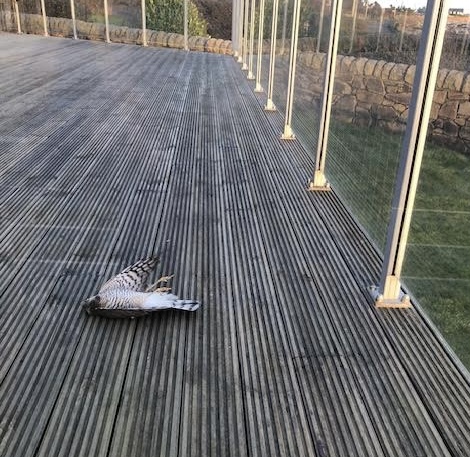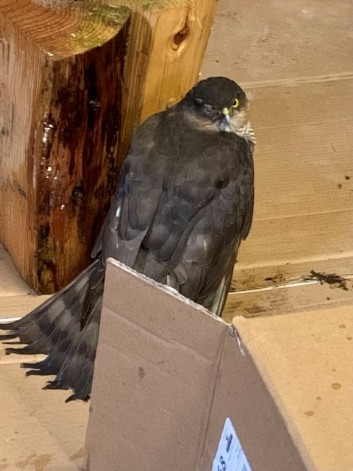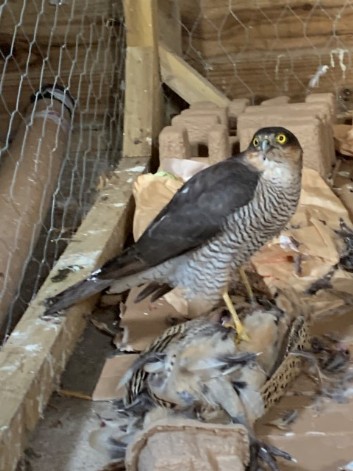As winter moves to spring, daylight increases and birds are on their annual migration to find the optimum place to breed. Our avian friends face many hazards and one of these is an invisible killer, glass. Glass in windows and panelling by its transparency and by its reflection of foliage and sky deceives birds. Many birds perish us a result of flying into glass. In the UK the British Trust for Ornithology estimates 100 million bird strikes happen every year. In the United States of America from studies run by Cornell Lab. the figures quoted are up to one billion birds die from window strikes in North America each year. These figures seem astronomical. Here on Arran, there can be few of us who have not experienced a bird strike on windows or glass panelling. Outdoor glass balconies overlooking the sea are particularly lethal. In one settlement in a relatively short period of time, six Sparrowhawks were killed. It is a problem that can be reduced by making glass more visible. There are many products available to help achieve this, including decals, stickers, films, tape, paint plus the use of netting, curtains and blinds. There seems to be a range of products to suit most situations.
Not all glass strikes result in instantaneous death to the bird. On occasions birds seem to be just stunned. On these occasions, it is worth putting the bird in a dark cardboard box - without food or water - and leave it in a warm (but not hot), quiet place for an hour or so. Take the box outside, open the box and, if you are lucky, the bird will fly off. If the bird is alive but not recovering, you may wish to take it to our local vet to seek advice. The illustrative photographs taken by Charlotte Clough show one lucky rescued window strike bird, Buzz the female Sparrowhawk. Concussed and with a damaged eye, after seven days of care it was successfully released back in its original territory in August 2023. Earlier this month it continued to be reported in its territory.
Reflection Rival
There is another interaction between birds and glass that can be perplexing and disturbing, individual birds attacking windows. These individuals are obsessed with their reflection and try to drive off this 'intruder' to their territory. This can go on for hours and indeed days on end. The cycle can be broken by getting rid of the reflection. Simple solutions can involve putting on a non-reflective material, such as cling film, on the outside of a window. Physically blocking access to windows with plants and hanging baskets might also help, while objects that dangle and catch the light and wind can be effective as can drawing a curtain or blind. In most species, territorial behaviour will subside outside of the breeding season, so window attacks should become less frequent.
This spring, please try to reduce glass strikes and help our feathered friends stay safe.


